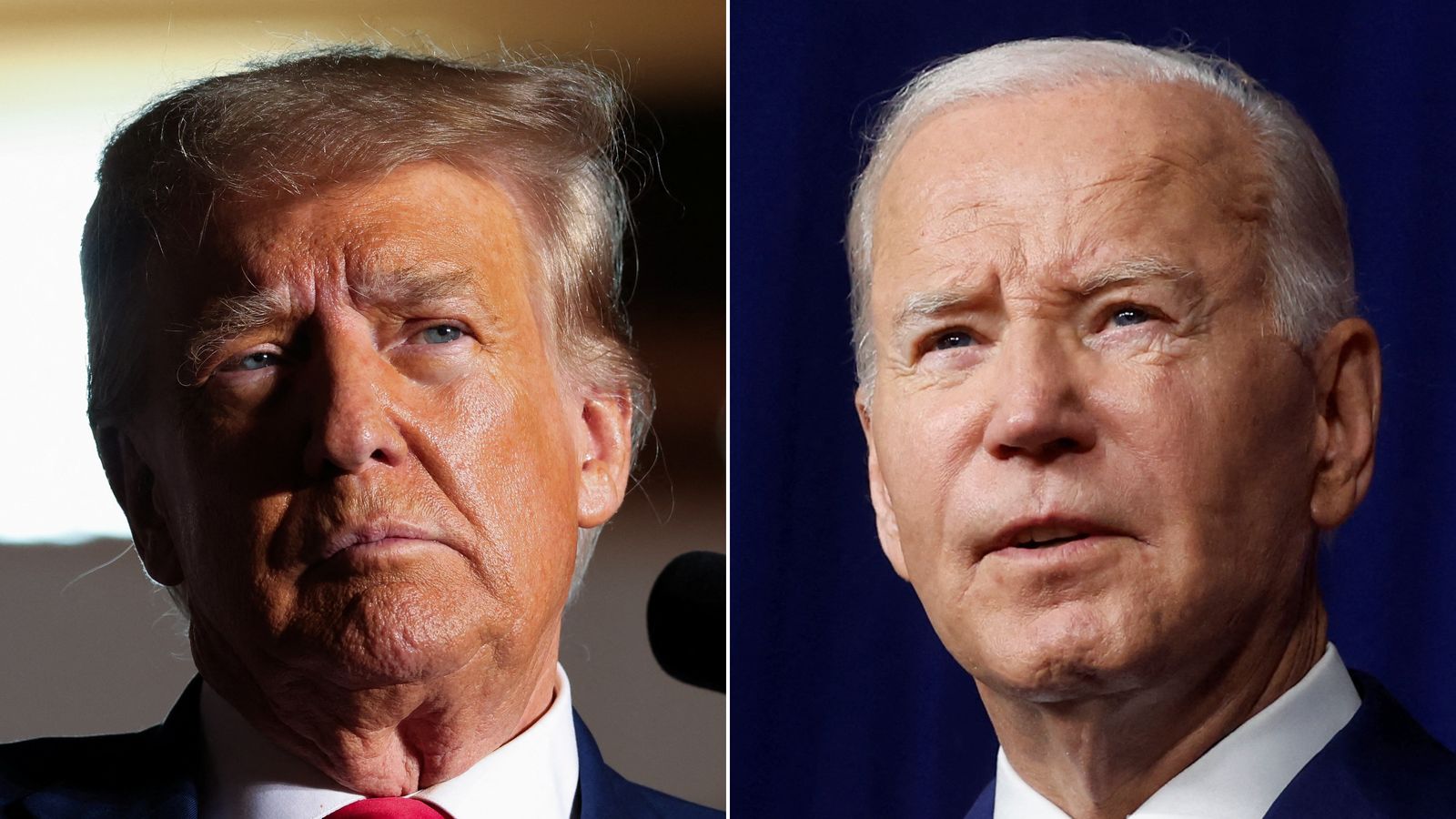Recent polls conducted by SSRS for CNN indicate that former President Donald Trump is currently outpacing President Joe Biden in two crucial battleground states, Michigan and Georgia. The majority of voters in these states expressed dissatisfaction with Biden’s job performance, policy decisions, and mental acuity.
Trump Leads Hypothetical Presidential Matchup
In a hypothetical two-way presidential race, registered voters in Georgia, a state Biden narrowly won in 2020, favor Trump (49%) over Biden (44%). Similarly, in Michigan, where Biden’s victory margin was larger, Trump enjoys the support of 50% of voters compared to Biden’s 40%. Notably, 10% of voters in Michigan stated they would not back either candidate, even when pressed to lean one way.
Trump and Biden: Likely Nominees for 2024
As the next presidential election approaches, Biden and Trump appear to be the most probable nominees for their respective parties. Biden’s potential primary challengers have failed to gain significant traction in polls, while Trump leads his Republican rivals in nearly all surveys, including these recent ones.
Non-Voters from 2020 Favor Trump
Trump’s lead over Biden is significantly bolstered by support from voters who did not participate in the 2020 election. These voters favor Trump by a margin of 26 points in Georgia and 40 points in Michigan. While these voters reported supporting Biden over Trump in the 2020 election, they now lean towards Trump for 2024.
Challenges Ahead for Both Candidates
These numbers suggest potential hurdles for both candidates in the upcoming campaign. Trump’s advantage hinges on his ability to retain support from a politically disengaged group and motivate them to vote. Conversely, Biden needs to regain the support of former backers who currently show little enthusiasm for his reelection bid.
Biden’s Struggles in Michigan and Georgia
Biden’s difficulties in both states are evident in voters’ perceptions of his presidential performance. Only 35% of voters in Michigan and 39% in Georgia approve of Biden’s job performance. Majorities in both states believe his policies have negatively impacted the country’s economic conditions.
Young Voters Favor Trump Over Biden
Most voters in both states believe Biden, at 81, lacks the qualities they seek in a president regarding policy positions, understanding of their problems, and mental sharpness. Younger voters, in particular, are unlikely to view Biden as aligning with their vision of a president. In a hypothetical matchup, younger voters in both states favor Trump (50% to 40% in Georgia, 49% to 38% in Michigan).
Michigan and Georgia Primaries
Michigan will hold presidential primaries on February 27, while Georgia’s primaries are scheduled for March 12. Trump’s lead among likely GOP primary voters in each state mirrors his performance in primary polling nationally. Behind him, there’s a tight race for a distant second, with Florida Gov. Ron DeSantis and former South Carolina Gov. Nikki Haley vying for the spot.
Voters’ Views on Key Issues
Considering three issues likely to be touchpoints throughout the 2024 campaign, voters in both states side with Democrats over Republicans on abortion, while aligning more with the GOP on immigration. Michigan voters are closely split on which party they align more with when it comes to protecting democracy in America, while Georgia voters give Democrats a slight edge on that issue.
Trust in the Election System
About 7 in 10 registered voters in Michigan, and a similar 68% in Georgia, say they’re at least somewhat confident that votes in their state will be accurately cast and counted in next year’s election. However, among Republican-aligned voters in each state, about two-thirds express doubt that Biden legitimately won the presidency, despite no evidence of election fraud that would have altered the outcome of the contest.
Enthusiasm Gap Between Parties
Overall, 61% of registered voters in Georgia and 57% in Michigan describe themselves as extremely motivated to participate in next year’s election. In Michigan, there’s a relatively modest partisan enthusiasm gap, with Republican-aligned voters 5 points likelier than Democratic-aligned voters to call themselves extremely motivated, while in Georgia, that GOP edge is a more substantial 13 points.

